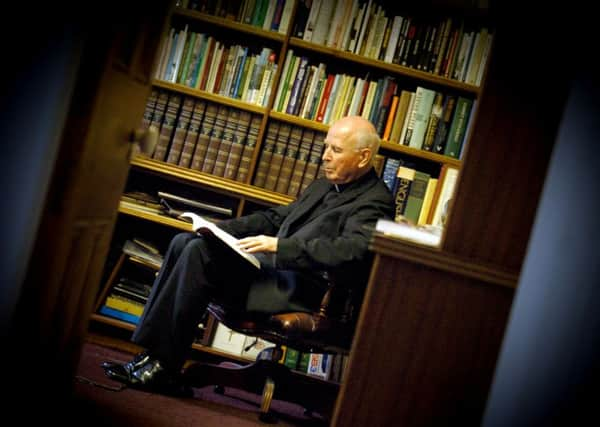Bishop Edward Daly: a true man of the people


He later studied at the Irish College in Rome, before taking up the first of his clerical appointments, as a curate in Castlederg (from 1957-1962).
In 1962, he was appointed as a curate to St. Eugene’s Cathedral, in the Bogside area of Derry, remaining there for 11 years. He was present during the Bloody Sunday shootings and was one of a number of local priests who accused the Parachute Regiment of ‘wilful murder’ that day. The image of the then Fr. Daly leading a group carrying a dying victim through the streets of Derry in search of aid whilst waving a white handkerchief on Bloody Sunday is famous around the world.
Advertisement
Hide AdAdvertisement
Hide AdIn 1973, he was appointed as a religious adviser to RTE. Less than a year later, the media skills he had gained were put to further use when, on January 31, 1974, it was announced he was to be the next Bishop of Derry.
His ordination as Bishop took place on March 31, 1974, and he returned to the Cathedral parish where he had served as a priest for more than a decade.
His appointment was hugely popular among Catholics in the city although his tenure as Bishop was marked by a period of political instability and paramilitary violence. During this time, though, he built up a strong working relationshpi with his Church of Ireland counterpart, Bishop James Mehaffey.
Dr. Daly remained bishop until October 26th, 1993, when ill-health, caused by a stroke, forced his retirement. He became, temporarily, the Apostolic Administrator for the diocese and later spent time researching and writing on the history of the diocese and its clergy. He retired completely on April 26th, 1994.
Advertisement
Hide AdAdvertisement
Hide AdHis main day-to-day activities in retirement centred around the Foyle Hospice. He was the organisation’s chaplain, regularly tending to the spiritual needs of terminally ill patients and saying Mass in the Hospice Chapel almost every Sunday.
He retained a keen interest in the affairs of Bloody Sunday and campaigned vigorously for a new inquiry into the shootings. He remained a leading member of the Bloody Sunday Trust.
In late 1999 and on into 2000, he suffered from poor health and was hospitalised several times. Despite this, he wrote a best selling volume of memoirs, ‘Mister, are you a priest?’which was published in 2000.
He also recovered sufficiently to give evidence to the Saville Inquiry into Bloody Sunday. On February 6th, 2001, he told Lord Saville’s tribunal that innocent people had been gunned down without justification. He also said he had seen a gunman on Bloody Sunday who fired a pistol at soldiers.
Advertisement
Hide AdAdvertisement
Hide AdIn August, 2010, Bishop Daly questioned the report into the Claudy bombing by the Police Ombudsman for Northern Ireland and criticised media coverage of it. Bishop Daly queried Al Hutchinson’s report, which said the Catholic Church co-operated with the British Government to remove a priest suspected of involvement in the bombing in 1972. He further doubted involvement by Fr James Chesney in the bomb attack on the County Derry village, which killed nine people, the youngest aged just eight.
In September 2011, in the second volume of his memoirs, ‘A Troubled See’, Bishop Daly addressed the issue of celibacy, calling for an end to compulsory celibacy for Catholic priests. Bishop Daly said that ‘there is certainly an important and enduring place for celibate priesthood. But I believe that there should also be a place in the modern Catholic Church for married priesthood and for men who do not wish to commit themselves to celibacy.”
He was awarded the ‘Freedom of the City’ last year.
He was admitted to hospital in recent days and he passed away yesterday.